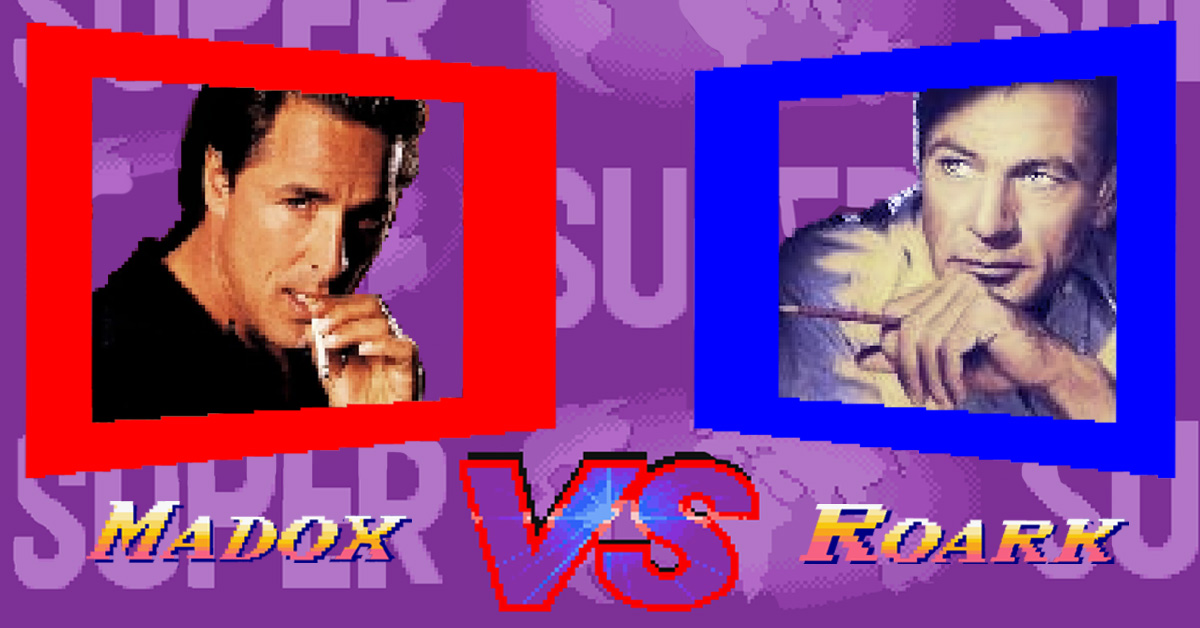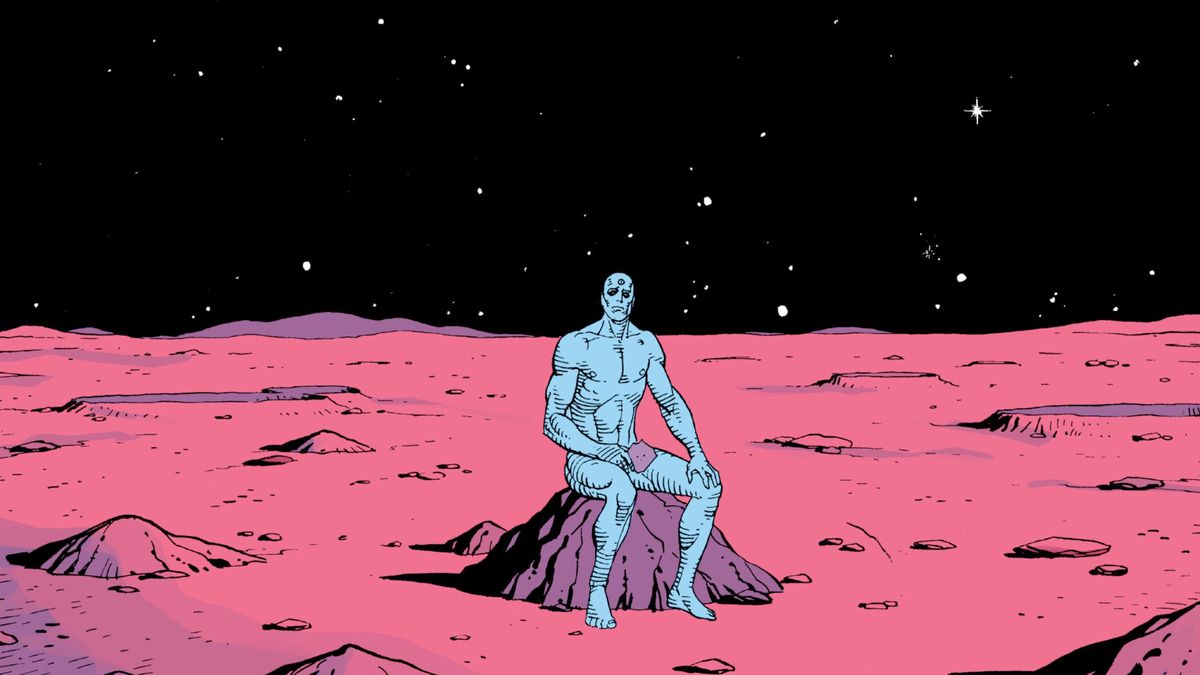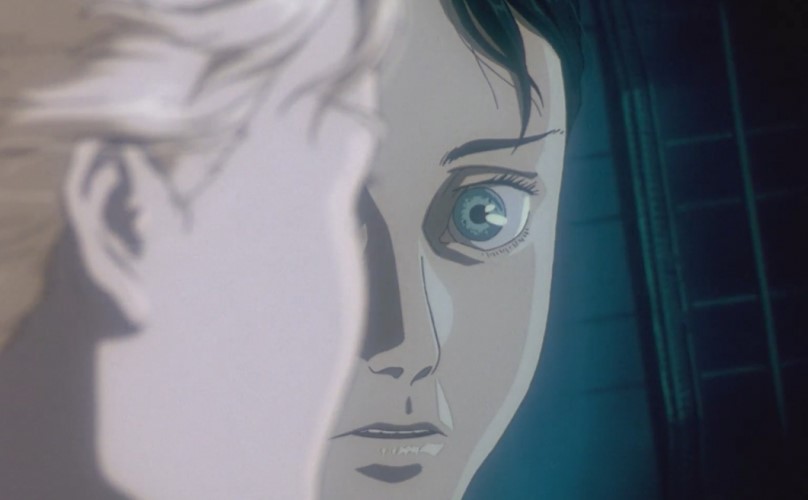Film noir has been defined as a genre characterized by its underlying philosophy of amorality. Perhaps the most distinctive element separating noir from the broader mystery and crime genre is the anti-heroic nature of its protagonists (ChellaWrites). Noir protagonists are not portrayed as strictly immoral but as individuals lacking a clear moral center (Barbara DeMarco-Barrett). They are often nihilistic, internally conflicted, and on the verge of crisis or a downward spiral, which is further exacerbated by the influence of archetypal figures like the femme fatale—typically an alluring yet dangerous woman. The noir protagonist’s conflicted monologue is said to make him more relatable, with audiences recognising his actions as guided by “baser instincts” (Gary Phillips). If we accept these premises, then perhaps there’s an anti-hero within each of us, ready to surface when morality fades into ambiguity.
It’s understandable why a cynical mind might appreciate noir’s portrayal of morality, especially after grappling with the injustices of the world. In this context, traditional superhero stories—with their muscle-bound heroes, mutants with supernatural powers, or Westerns with slick gunslingers who clean out the corruption in small towns—start to feel like unrealistic fantasies. Noir instead offers a sobering message; morality isn’t as simple as black and white, at least not in practice. The nihilism and subjectivity of the noir anti-hero resonate because, after all, morality itself is subjective.
Despite my distaste for those who criticise traditional masculinity and denigrate the heroic tendency, especially in the superhero genre, (see my other article on Identity and Ideological Power in Alan Moore’s Watchmen), I have to admit that the altruistic hero who sacrifices himself to save others has always felt somewhat repetitive and unappealing to me. After immersing myself in the noir genre while developing ideas for a tech-noir comic (title TBC), I found myself dissatisfied with both the traditional altruistic hero and the base-driven anti-hero of noir. This led me to wonder if there might be a more compelling representation of heroism. Perhaps one could be found in the novels of Ayn Rand.
Rand’s fiction, written partly to convey her philosophy of Objectivism, aims to depict what she considered the ideal man, or man as “he could be and ought to be” (Mimi Gladstein). Her 1943 novel The Fountainhead was her first attempt to portray such a man. The Randian hero—given that Rand’s philosophy promotes selfishness, or what she defines as rational self-interest—is an ethical egoist: morally heroic and heroically rational (Wheeler).
Critics often characterize Rand as an apologist for the kind of selfishness that achieves its gains by taking value from others. To explore the distinction between the conventional understanding of selfishness and Rand’s definition, I will compare the protagonists of The Fountainhead and Dennis Hopper’s neo-noir film The Hot Spot (1990). By examining how each character’s moral philosophy shapes his actions, we can better understand the difference between Rand’s concept of rational self-interest and acting purely on base desires at the expense of others.
The protagonist of The Hot Spot, Harry Madox (played by Don Johnson), fits the bill of a noir anti-hero perfectly. Madox, a car salesman, is an amoral drifter (Hopper) who takes a job in a small Texan town. His life philosophy is summed up early on when he tells a co-worker, “In this life, you gotta take what you want. You sure can’t stand around waiting for someone to give it to you.” What follows is a spontaneous, hedonistic journey: Madox disrespects his boss, flirts with the much-younger receptionist Gloria Harper (Jennifer Connolly), and begins an affair with his boss’s wife, Dolly Harshaw (Virginia Madsen). He even sets fire to a building to create a distraction while robbing the town bank. Each of these actions seems driven by immediate gratification rather than a larger plan or guiding principle. There is a sense throughout the film of being drawn along with the character’s life, feeling as though we’re swept along by his whims and circumstances without fully understanding or controlling them. It wouldn’t be a stretch to imagine that society would label someone like Madox as ‘selfish.’
Yet, interestingly—given the criticism of Rand’s views on selfishness—a charitable reading of The Fountainhead will not only see a wholly different character of man in the protagonist she presents – but a man who lives by the completely opposite philosophy. Howard Roark (played by Gary Cooper in the film adaptation) shares Madox’s determination to achieve his values, but he does so without being driven by whims, and certainly not by the whims of others. Roark lives in alignment with his own values and refuses to compromise. He isn’t concerned with society’s expectations, especially in his field of architecture, but instead adheres to his own standards. Roark is at times willing to wait months without income to avoid compromising his design ethic and chooses to work in a stone quarry rather than create a building he doesn’t believe in. As Rand herself put it, Roark’s ultimate embodiment of the ethical egoist is simply as “a man who lives for himself”.
Ultimately, Roark achieves what he wants by staying true to his principles and values, whereas Madox, who lacks any guiding principles, pursues his desires impulsively from moment to moment. For instance, when Madox discovers that Gloria has been blackmailed by Frank Sutton, he confronts and beats Sutton. While a bad-ass and artistic scene, it feels unconvincing as an act of heroism. Initially, it seems unmotivated because of Madox’s ongoing affair with Dolly, but when it becomes clear that he is framing Sutton for the bank robbery, his true motive—to divert suspicion from himself—emerges. One could argue that Madox is acting in his rational self-interest here, but this act is tainted by previous irrational, self-destructive actions, proving that he is driven primarily by base desires and whims.
The Destruction of Values
This contrast becomes most striking when we consider possibly the most interesting point of comparison between Madox and Roark – as the respective stories climax, each of the characters destroys a building. However, they do so for vastly different reasons, further highlighting the core differences in their philosophies.
Madox sets fire to a building to create a diversion while he robs a nearby bank—destroying someone else’s property to take something that doesn’t belong to him and which he hasn’t earned. He lacks the ability to generate value on his own. Roark, by contrast, blows up a building he designed because its execution had been compromised. He destroys what would have been his greatest creation, not out of whim or self-indulgence, but to preserve a value that is greater: his integrity and creative vision.
femme tonique
We’ve discussed Madox as an anti-hero and Roark as an egoist hero. Dolly Harshaw, the archetypal femme fatale, is willing to destroy Madox’s life and career to keep him, even though he doesn’t genuinely value her. At the film’s end, as she drives him off into the sunset, she echoes his own philosophy back to him – “I always get what I want”. Yet, her ‘victory’ feels hollow. Although she gets Madox, he neither loves her nor values her for anything beyond fleeting physical gratification. This outcome seems more self-destructive than self-interested. Madox also ultimately fails to get what he truly wants: Gloria. His impulsive choices and entanglement with Dolly not only cost him the chance to be with her but also reveal the emptiness of his pursuits, leaving him trapped in a life devoid of real fulfillment.
In contrast, Roark’s relationship with Dominique Francon (Patricia Neal) is built on mutual respect and values. Roark’s desire for Dominique is clear, yet he is willing to stand by while she marries another man in order for her to come to terms with her relationship to her own values (Yaron Brook). While Dominique attempts to destroy her values and likewise Roark’s career in an effort to protect him from the world, his actions enable her to appreciate and preserve her values, rather than destroy them. In the end, Roark gains Dominique, and together, they embody the highest form of value-creation.
Interestingly, I haven’t found a clear descriptor or archetype for a woman like Dominique. I thus propose the term femme tonique—a woman who helps a man live, who breathes life into him, preserves him, and enables him to become more of what he is meant to be. She is therefore essential to the creation and existence of the Randian hero and the ideal man.
Conclusion
The protagonists of The Fountainhead and The Hot Spot are both driven to get what they want from life, but their opposing philosophies shape their actions and outcomes in vastly different ways. Harry Madox embodies the conventional understanding of selfishness, pursuing base desires and immediate gratification. Howard Roark, often mischaracterised as selfish, is guided by principled self-interest, which enables him to live in alignment with his values. Madox’s seemingly altruistic actions are ultimately empty and self-destructive, leading him into a life with a woman he neither loves nor values. Roark’s unwavering commitment to his principles, by contrast, allows him to live a life of genuine value creation. In the same way that we all have the potential to be noir anti-heroes, driven by whim and circumstance, we also possess the capacity to be Randian value-creator heroes—individuals who, by staying true to our principles and pursuing rational self-interest, can lead lives of purpose and integrity.



